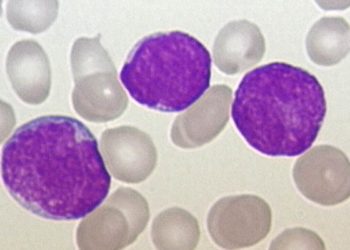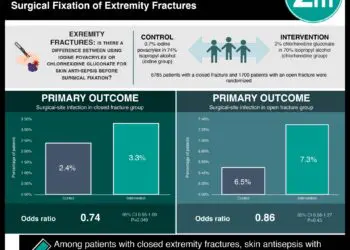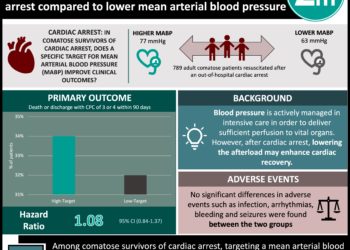ICU chlorhexidine baths do not reduce rates of hospital-acquired infections
1. In this study, daily bathing with chlorhexidine did not decrease the rates of hospital-acquired infections in ICU patients.
2. The hospital-acquired infections that were assessed in this study included central line associated blood stream infections (CLABSI), catheter-associated urinary tract infections (CAUTI), ventilator associated pneumonia (VAP), and C. difficile infections.
Evidence Rating Level: 1 (Excellent)
Study Rundown: Chlorhexidine is a topical broad spectrum antimicrobial that has been used to try to decrease the incidence of hospital-acquired infections in patients in the intensive care unit (ICU). This study utilized cluster randomization to compare rates of central line associated infections, catheter-associated urinary tract infections, ventilator associated pneumonia, and C. difficile infections between individuals in the ICU bathed with and without chlorhexidine. The study included 10,783 individuals treated in five ICUs. There was no difference in the rate of infections between the two study groups after controlling for demographic information and known prognostic factors such as comorbidities. Strengths of this study include the cluster randomization, use of multiple significant outcomes, and inclusion of ICUs from five tertiary care centers. The major weakness of this study is the inability to blind the care providers in the ICUs due to the difference in scent between the chlorhexidine and control cleaning materials. Another weakness is the lack of assessment of rate of adherence. This study suggests that bathing ICU patients with chlorhexidine does not result in a decrease in hospital-acquired infections, but a larger and longer study may be helpful in determining whether specific patients would benefit from this practice.
Click to read the study, published today in JAMA
Click to read an accompanying editorial, published today in JAMA
Relevant Reading: Effect of Daily Chlorhexidine Bathing on Hospital-Acquired Infection
In-Depth [cluster randomized study]: This study used cluster randomization to randomize 10,783 individuals admitted to ICUs in five tertiary care centers in the US to daily bathing with chlorhexidine or non-antimicrobial solution. The rates of central line associated infections, catheter-associated urinary tract infections (UTIs), ventilator associated pneumonia, and C. difficile infections were compared between the two groups over a 1-year period. During the time of chlorhexidine bath use 55 infections were recorded, while 60 infections were recorded during the control period. This resulted in no statistically significant difference in the rates of infection between the two groups, even after controlling for demographic factors, comorbidities, time, admission white blood cell count, and type of ICU (RR 0.94; 95%CI 0.65-1.37). There was also no difference when the ICU types (medical, surgical, trauma, cardiovascular, neurological) were analyzed individually. While in-hospital mortality initially appeared to be reduced with use of chlorhexidine baths (8.14% vs. 9.31%; 95CI -2.3 to -0.03), this finding was no longer significant when baseline variable were taken into account.
More from this author: Ambulances equipped for thrombolysis allow for more rapid stroke treatment, Stem cell transplant may be effective in sickle cell disease, Adding sargramostim to ipilimumab may improve survival in advanced melanoma, No change in health or education outcomes following implementation of duty-hour restrictions, HPV vaccine not associated with Multiple Sclerosis
Image: CC/Calleamanecer
©2015 2 Minute Medicine, Inc. All rights reserved. No works may be reproduced without expressed written consent from 2 Minute Medicine, Inc. No article should be construed as medical advice and is not intended as such by the authors, editors, staff or by 2 Minute Medicine, Inc.







